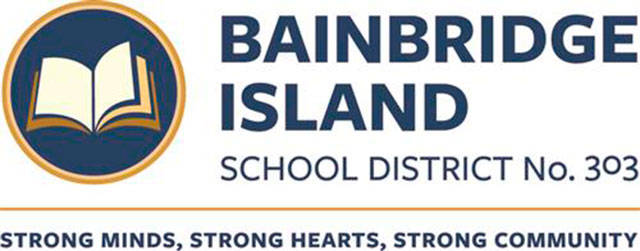The Bainbridge Island School District board of directors is expected to give their final approval late last week for the coming year’s budget.
With last year’s deficit spending and subsequent budget crisis now in their rear-view mirror, school board members expected to approve a finalized budget for the 2017–18 school year.
Despite the past budget crisis, Bainbridge Island School District Superintendent Peter Bang-Knudsen said he’s confident in the district’s ability to provide a quality learning environment for all kinds of students.
“We obviously had some challenges last spring, and I feel confident that we’ve worked through those challenges as best we could,” Bang-Knudsen said.
“We’re still emphasizing some really important areas, trying to provide as many opportunities for students to pursue their interests in different areas; whether it’s in high school in terms of electives, or in terms of career pathways,” he said.
This year the district expects to spend $46.2 million from the general fund, which pays for day-to-day school operations, teacher and staff salaries, and other essential costs. The new budget marks an increase of $1.4 million over last year’s general fund spending.
The increases are partially a result of previously negotiated raises to staff salaries and benefits, which remain the largest portion (86.5 percent) of the district’s total expenditures.
More than $25.9 million is earmarked for regular instruction, and will account for 56.2 percent of the overall general fund budget. Percentage-wise, this will be a decrease from the previous school year’s budget (57.1 percent).
Vocational and career technical (CTE) education spending is expected to increase by $647,275 this year and its $2.6 million total will account for about 5.7 percent of general fund spending in the 2017-18 school year.
Bang-Knudsen said that the increase is chiefly due to the district working to accommodate an increased interest in CTE classes by students.
“I think it continues to be a really important value for our district and for the community,” the superintendent said of the CTE program. “What we’re seeing is a high level of interest, and students are signing up for those kinds of classes across the board.”
Adding funds to the CTE program would have appeared to be luxury earlier this year. Back in February, Bang-Knudsen announced that the district would need to cut $2.1 million from the budget.
The district later received a windfall in late June when the Washington State Legislature passed an educational spending plan that would allocate, through local taxes, $7.3 billion for schools over the next four years.
The new state budget will bring the Bainbridge Island School District an additional $2,047,210 in general fund increases this year.
Unfortunately, the new state budget did not arrive soon enough, and the district had already made staffing cuts in order to meet the budget deficit and declining student enrollment numbers.
The new district budget finds certificated and classified staff members losing the full-time-equivalent of more than 16 positions. Certificated staff dropped from 266.4 FTE in the 2016-17 school year to 256 FTE during the 2017-18 school year. Classified staff positions also dropped from 144.9 FTE to 138.4 FTE.
In addition to the staffing cuts, the district also eliminated an annual all-staff breakfast, reduced bus washing time and consolidated two bus routes to save money.
The 2017-18 budget also takes into consideration lower projected enrollment numbers, with 74 fewer students expected to attend Bainbridge schools this year.
Budget increases will also be felt due to two levies passed by island voters in February, which will gather a total of $51.6 million for Bainbridge schools between 2018 and 2021.
Financial contributions gathered by the Bainbridge Schools Foundation were also factored into the budgeting process, Bang-Knudsen said.
“We’ve got continued funding for support classes and support systems for kids who are struggling or needing that little extra help to get across the finish line or feel successful in school,” he said. “That’s funding that’s not coming from the state, or from the federal government; we’re doing that through a combination of local levy funds but then also Bainbridge Schools Foundation, who are supporting that as well.”
“I feel real excited that we have some strong priorities in our budget, and I think it’s reflective of our overall values for educating all kids,” Bang-Knudsen said.



